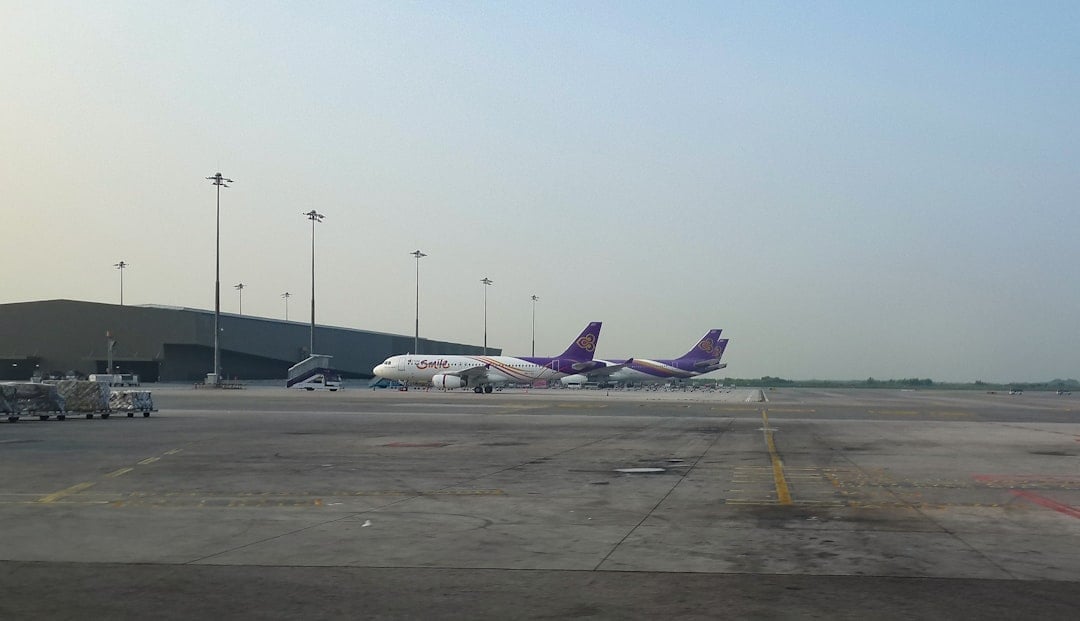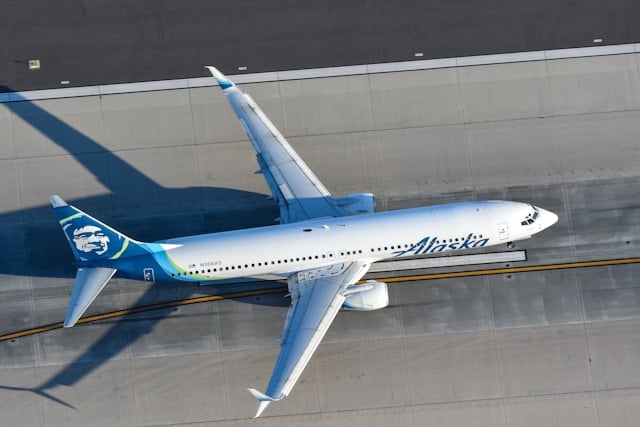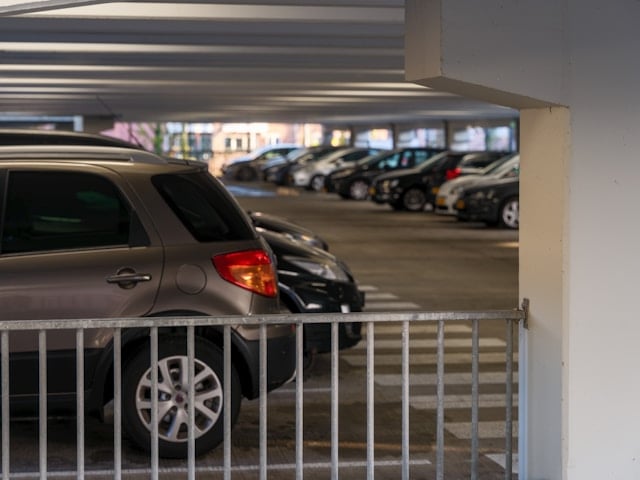Key Takeaways
• Thailand’s Flight Delay and Compensation Scheme starts May 20, 2025, covering all departing domestic and international flights.
• Compensation ranges from 1,200 to 4,500 THB, plus mandatory meals, communication, accommodation, and refunds for delays or cancellations.
• Airlines must pay within 14 days and offer passenger support, aligning Thailand’s rights with global standards like EU261.
Thailand 🇹🇭 has taken a major step to protect air travelers with a new Flight Delay and Compensation Scheme. Set to start on May 20, 2025, this scheme creates much stronger rules for airlines on how to treat passengers when flights do not go as planned. The new framework covers both domestic and international flights leaving from Thailand 🇹🇭. This article lays out how the new scheme works, what it covers, and what it means for travelers, airlines, and related groups.
Summary of the Legal Change

Starting May 20, 2025, Thailand 🇹🇭 will enforce a new set of rules requiring airlines to provide more support and higher compensation to passengers affected by flight delays and cancellations. The new regulations apply to all flights (both domestic and international) that leave from Thailand 🇹🇭. Cash amounts for compensation have increased, and airlines must now also give food, drinks, and communication access during long waits.
Background and Reason for the Change
In recent years, air travel in Thailand 🇹🇭 has grown quickly. Travelers have faced more delays and sudden cancellations, leading to complaints about the lack of help from airlines. The previous rules often left passengers waiting without food or a way to contact family and work. Airline compensation, when given, was usually too low to cover expenses like meals or hotels.
Officials decided to change this for two main reasons:
1. To offer better help for people stuck by delayed or canceled flights.
2. To bring Thailand’s 🇹🇭 passenger rights up to global standards, such as the EU261 policy in Europe.
Authorities hope these stricter rules will build trust in Thailand’s 🇹🇭 aviation sector and help the country’s tourism and business travel bounce back from the effects of the pandemic.
What Is Covered Under the New Scheme?
Flight Delays
The new Flight Delay and Compensation Scheme changes what support passengers can expect, based on the length of the delay:
Delays Longer Than 2 Hours
If a flight is delayed by over two hours, airlines must:
– Give free food and drinks suited to the amount of waiting time (sometimes as meal vouchers).
– Offer free communication options, such as phone calls or email, so passengers can update family, work, or hotels about their situation.
Delays Longer Than 5 Hours
When a delay reaches five hours or more, extra support is required:
– Passengers must move up in compensation:
– 1,200 Thai Baht (THB) (about 37 USD) for domestic flights.
– 1,500 THB (about 46 USD) for international flights.
– Airlines may offer this as cash, credits, vouchers, or travel points, but the value must meet or exceed the legal minimum. Airlines have 14 days to pay out the compensation.
– If a lengthy delay means an overnight stay, the airline must offer:
– Free hotel stays
– Free transport between the airport and hotel
– Passengers may also cancel their journey for a full refund or take other compensation if they wish to stop traveling.
Delays Longer Than 10 Hours
If a flight is delayed by more than ten hours, airlines owe even more cash compensation. The amount depends on how far the flight travels:
– Flights up to 1,500 kilometers: 2,000 THB (about 61 USD).
– Flights 1,500–3,500 kilometers: 3,500 THB (about 107 USD).
– Flights over 3,500 kilometers: 4,500 THB (about 137 USD).
All the previous rights (food, drinks, accommodation, transport, refunds, etc.) still apply if relevant.
Flight Cancellations
When airlines cancel flights, the amount and kind of support depends on the timing and cause. The rules are strict if the cancellation comes with little notice:
– If the airline cancels less than 7 days before departure, or with less than 7 days’ notice and does not give a replacement flight arriving within three hours of the old schedule, the affected passengers get the same compensation as if their flight had been delayed more than ten hours (based on the flight’s distance).
Exceptions to Compensation
There are a few times when no compensation is required:
– If the airline warns passengers at least seven days before departure.
– If an alternative flight is offered, and it arrives within three hours of the original planned arrival.
– If the cancellation is caused by events outside the airline’s control (“force majeure”), like severe weather, political unrest, or emergencies that make flying unsafe.
Tarmac Delays
Sometimes passengers must wait on the plane after boarding (a “tarmac delay”). The new rules say that, in these cases:
– Airlines must keep the air in the cabin fresh and comfortable.
– Toilets must be open the whole time.
– Medical care must be ready if needed.
– If the tarmac wait goes over three hours with no departure, passengers must be allowed off the plane—unless it is unsafe or not allowed due to airport control.
Domestic vs International Flights
The support passengers receive depends on whether the flight is domestic or international. Here is a simple summary:
| Issue | Domestic Flights | International Flights |
|---|---|---|
| Delay Over 5 Hours | 1,200 THB | 1,500 THB |
| Delay Over 10 Hours | N/A | Up to 4,500 THB, based on distance |
| Canceled Flight | 1,500 THB | Same as 10-hour delay (distance) |
Note: Compensation can be paid as cash, travel credits, vouchers, or reward miles, but the value must be at least what the law prescribes.
Airlines’ Duties and Passenger Rights
The scheme sets out more than just cash compensation. Airlines must:
– Offer meals, drinks, free communication, accommodation, and free transfers if passengers are stranded overnight.
– Provide a full refund or alternative compensation as an option if flights are canceled or broken up due to long waits.
– Always pay out all compensation—no matter the form—within fourteen days of the event (delay or cancelation).
– Uphold these passenger rights without the need for passengers to take airlines to court, making the process faster and easier.
How the Rules Compare to Previous Law
Before this change, Thailand’s 🇹🇭 passenger rights were less clear and more limited. Under the old rules:
– There was no set timetable for support or payment amounts for delayed passengers.
– Many airlines did not provide meals, drinks, or places to sleep unless required as a “goodwill gesture”.
– Refunds and compensation sometimes took much longer to process, and amounts were often too small.
– There were gaps for international flights, or flights leaving from Thailand 🇹🇭 operated by foreign airlines.
After May 20, 2025:
– The rules will be clearer and stricter.
– Minimum compensation amounts are set by law.
– Passengers will know exactly what they can request, based on how long they are delayed.
– Airlines will have to meet higher standards, similar to those in Europe and other parts of the world.
Implications for Travelers and Airlines
Current and Future Passengers
For travelers, this means much more certainty and help if flights don’t depart or arrive as planned. People on business trips will not risk missing meetings without help from airlines. Tourists visiting Thailand 🇹🇭 will get faster support when things go wrong.
Travelers should keep records of their original bookings, boarding passes, and times of delay, just in case there is a dispute with the airline.
Airline Companies
Airlines operating in and from Thailand 🇹🇭 must prepare for:
– Higher costs when large delays or cancellations happen, as they will need to pay more and offer more support to affected passengers.
– The need to update staff training, customer service procedures, and computer systems to make sure support is in line with the new legal rules.
– Possible more serious fines or penalties if they break the new laws.
Many airline leaders accept the need to improve passenger rights but say it may raise ticket prices a little, especially for routes with lots of storms or air traffic issues.
Controversies and Debates
There has been wide approval of the new rules from consumer groups and regular travelers. However, some industry leaders are not happy, saying:
– The higher compensation may affect smaller airlines’ profits, especially those running mostly domestic flights.
– Airline groups wanted more specific definitions of “force majeure” so they would not be forced to pay when delays are not their fault.
– There are worries about how fast and fairly airlines can process thousands of claims if there are big storms or events affecting flights.
Officials say the law tries to balance strong support for passengers with the reality of flying in a busy region like Southeast Asia.
Timeline and Implementation
The process for the new law has taken over a year, with many meetings between Thailand’s 🇹🇭 Civil Aviation Authority, tourism boards, airlines, and consumer groups. After collecting everyone’s views, government officials finalized rules in early 2025, with an effective date of May 20, 2025.
Airlines have several months to get ready, including updating customer service plans and telling passengers about their new rights.
Transitional Arrangements
Between now and May 20, 2025, airlines can still choose to follow the new scheme as a goodwill gesture, but these rules do not fully apply until the starting date. Travelers who booked flights before May 20 but travel on or after the effective date should check with their airline or the Civil Aviation Authority of Thailand for specific information, as airlines may apply the new policy to all flights on or after that date.
Common Questions
Will all delays or cancellations qualify for compensation?
No. The law has strict rules: for example, no compensation if the issue was caused by events outside the airline’s control (like storms).
How do I ask for compensation?
Passengers should contact the airline directly and keep all records of their travel and delay. Airlines must respond and pay within fourteen days.
Does the law apply to flights arriving in Thailand 🇹🇭, or just leaving?
The scheme covers flights that depart from Thailand 🇹🇭 (even if they are run by foreign airlines).
What if the airline refuses to pay?
Travelers can ask for help from Thailand’s 🇹🇭 government consumer protection agencies or aviation authority. In case of disputes, travelers may start a complaint or seek help directly through legal means.
Legal Challenges and Further Actions
At this time, there are no public legal challenges to the law. Some airline industry groups have hinted they may push for clearer rules on what counts as “force majeure”, but the main points of the law are set to come into force as planned.
Compliance Steps and Next Actions
For passengers, it’s wise to:
– Read their rights on the airline’s website or the Civil Aviation Authority of Thailand.
– Keep boarding passes, receipts for expenses, and copies of all communication with the airline.
– Contact the airline soon after the delay or cancelation, using official channels.
Airlines should:
– Train all staff on the new Flight Delay and Compensation Scheme.
– Update their rules and training material in time for the May 20, 2025 starting date.
– Set up easy ways for passengers to claim compensation.
As reported by VisaVerge.com, this law brings Thailand’s 🇹🇭 air passenger protections much closer to what is common in Europe and other places, but some exceptions remain to protect airlines from blame when things happen beyond their control.
References
For the full, official details, please see Thailand’s Civil Aviation Authority and airline websites.
This summary is for general guidance only. Travelers and airlines should always seek professional legal advice or contact the official authorities for questions about their own situation or for updates to the law.
Learn Today
Flight Delay → An event when a flight departs later than its scheduled time, triggering passenger rights protections.
Compensation Scheme → Legal framework mandating payments or benefits to passengers for delays or cancellations.
Force Majeure → Uncontrollable events like severe weather or emergencies excluding airlines from paying compensation.
Tarmac Delay → A wait time onboard the aircraft before departure, requiring specific passenger care under new rules.
Civil Aviation Authority → Government agency overseeing airline regulations and passenger rights enforcement in Thailand.
This Article in a Nutshell
Starting May 2025, Thailand will impose strict rules requiring airlines to compensate and support passengers during flight delays and cancellations, improving traveler protections and aligning the country with global aviation standards for customer care and timely compensation.
— By VisaVerge.com
Read more:
• IRCC Proposes Victim Compensation Fund to Tackle Immigration Consultant Fraud
• Guaranteed Wage for H-1B Workers: Fair Compensation Explained
• Gulf Migrant Workers’ Families Demand Compensation, NRI Helpline Setup
• easyJet Compensation: Passport Blunder Leads to £800 Payout Post-Brexit
• Compensation for Plasma Donation on TN Visa: Can I Get Paid?













